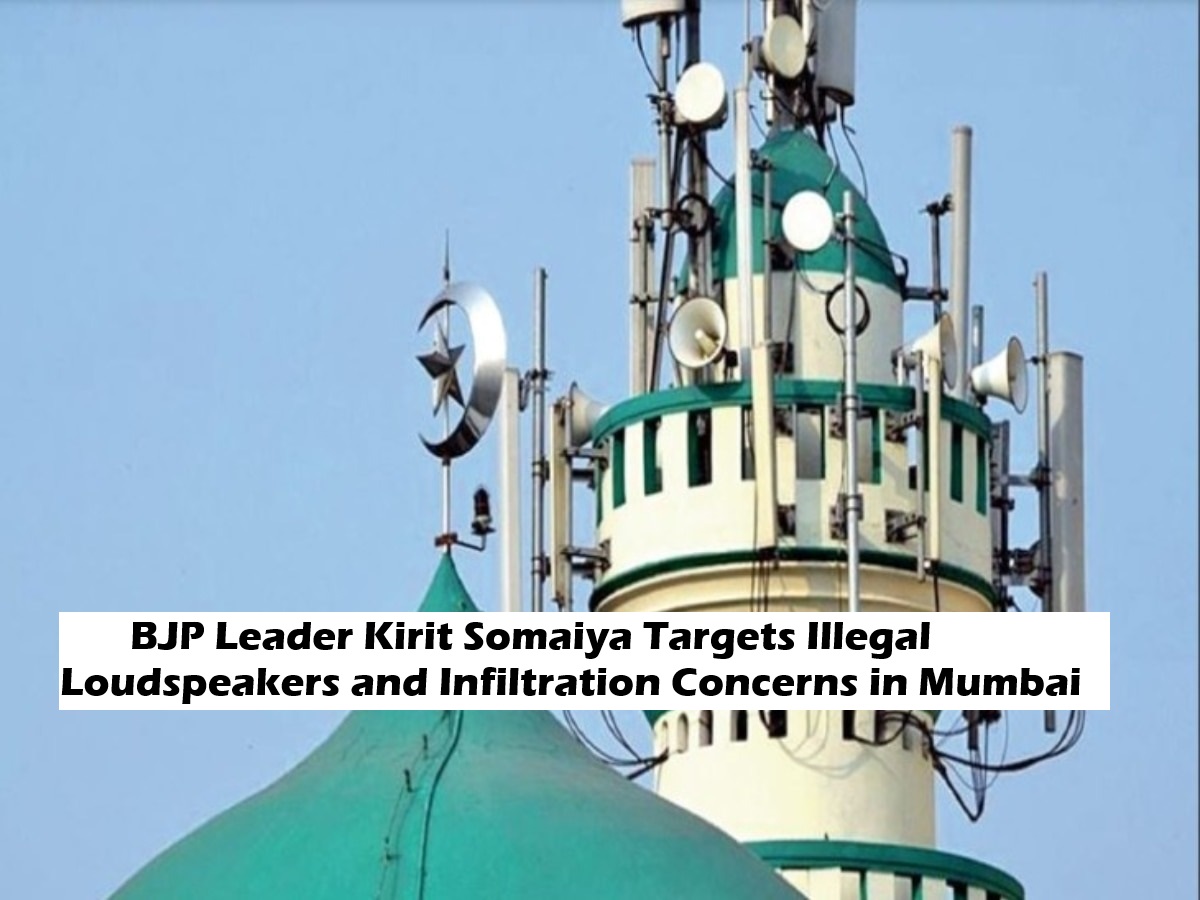
Mumbai's political sensitivity heightened dramatically following a new complaint by BJP leader and former Member of Parliament Kirit Somaiya. Somaiya on Saturday lodged a police complaint concerning what he alleges to be illegal loudspeaker installations on 72 mosques in the Govandi slums in Mumbai. He claims that these loudspeakers, without any legal issuance, permission, or police requisition, exist on a direct contravention of rule order and public safety.
Loudspeaker Controversy Heats Up
Somaiya also got off the Civic Issues Janta Milap where his attention was caught regarding noise pollution exacerbating civic violations. ‘I went to the local police station and lodged the complaint in writing. There are 72 mosques with illegal loudspeakers in Govandi alone. These installations are done without police approvals. The authorities have promised me that they will act’ he said while speaking to this reporter.
The police has to act under his complaint 72 hours with him as the law states taking action within this period after a request involving interference in public order and law and order breaches.
Somaiya’s Continuous Concerns
Kirit Somaiya is well acquainted with the topic in question and has brought it to attention more than once. For the previous year, he has brought up similar issues from other regions within Mumbai. As per his claim, Govandi is not singular—many localities across Mumbai struggle with similar issues.
In his view, the problem is not confined to places of worship or certain communities; it is about the enforcement of law as such, irrespective of the area or institution. “If something is illegal, it has to be handled legally regardless of whether it is a mosque, temple or any other place,” he has been quoting in the media.
In his arguments, he tries to justify that he is not blaming any single community but trying to uphold that all public facilities are put in place according to legal standards, especially with regard to the controls on disturbing the peace by using loudspeakers in residential zones.
The Larger Conflict on Unauthorized Incursions
Besides the issue of loudspeakers, Kirit Somaiya has focused more on unauthorized infiltration and prominently on the suspected Bangladeshis settled in parts of Maharashtra. He has made some profound allegations concerning the use of ficticional documents including Aadhaar, birth certificates, and false affidavits to claim Indian citizenship.
During his latest media briefings, Somaiya highlighted that he has gathered first-hand data from the regions of Akola, Latur, and even some parts of Mumbai, where such activities are said to have taken place. He claims that certain illegal immigrants are even able to forge documentation such as school admission papers, bank account opening papers, and welfare scheme eligibility documents.
"This goes beyond unlawful immigration – it is a matter of national security,” Somaiya cautioned. “These persons lack any legal form of identification, yet they assimilate into our society and exploit resources intended for our citizens.”
Political, Media, and Public reactions
Overshadowed in the media that find their focus on how Somaiya’s work has been appreciated by law-and-order supporters is his more severe backlash: Critics contend this sort of activity only serves to inflame communal violence. Regardless, the BJP leader has stuck by his claim that his campaign is not motivated by a particular religion. Rather, working within the bounds of legality, he seeks citizen’s welfare.
Adding a new layer of political bias to the already existing discussion is The Waqf Bill that recently received Presidential assent. While not directly related, the timing of the complaint has sparked discussion concerning the implementation of religious rights versus public policy.
In summation, Kirit Somaiya’s most recent decision indicates a heightened interest in the enforcement of civic laws, particularly in delicate metropolitan areas such as Mumbai. His emphasis on both illegal loudspeaker usage and undocumented border crossings places him in the middle of a struggle that encompasses law, politics, and public opinion.
If the prompt decision is made and the issue is settled quickly, or if this devolves into a drawn-out political dispute, only time will tell—but what is certain is that Somaiya will continue to fight the good fight for quite some time.
Read More: The Hostel Segregation Row What the SC Stay on UGC 2026 Regulations Means for You

 Share
Share


_1531794722_100x75.jpg)
_591321350_100x75.jpg)